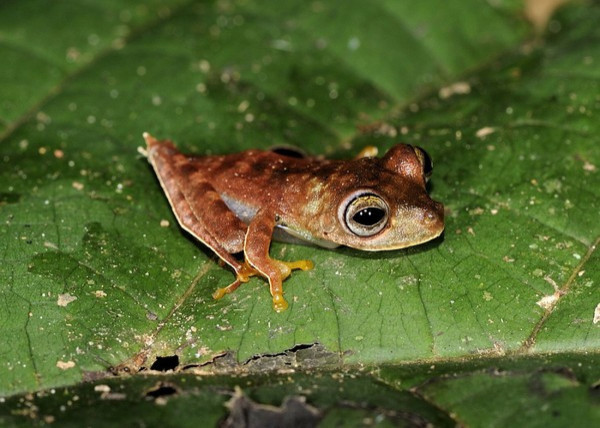Exotic Species New to Science Discovered in Suriname (VIDEO)

A scientific expedition into the pristine tropical forests of Suriname has brought some good news in the wildlife front.
The three week survey by Conservation International (CI), as part of its Rapid Assessment Program (RAP), has discovered 46 exceptional species that are new to science.
The survey explored three remote areas along the Kutari and Sipaliwini rivers near the village of Kwamalasumutu to document the biodiversity of the area, in an attempt to explore the eco-tourism opportunities there.
The survey has documented around 1,300 exceptional species, which include 46 species new to science like cowboy frog, armored catfish, crayola katydid, and great horned beetle.
As a scientist, it is thrilling to study these remote forests where countless new discoveries await, especially since we believe that protecting these landscapes while they remain pristine provides perhaps the greatest opportunity for maintaining globally important biodiversity and the ecosystems people depend upon for generations to come, said Dr. Trond Larsen, director of the RAP.
Some of the species are exotic and spectacular with unique features and colors. The scientists in the team were amazed for the diversity of birds and insects in the region. The area was paradise for the entomologists among us, with spectacular and unique insects everywhere. I didn't even have to look for ants because they jumped out at me, said Dr. Leeanne Alonso, a former CI RAP director who is now with the Global Wildlife Conservation.
The team, which consisted scientists, indigenous Suriname Trio people and Student volunteers, came across of extensive cave petro glyphs in a site named Werehpai near the village of Kwamalasamutu and it is believed to be oldest human settlement (5,000 years old) located in Southern Suriname.
He CI believes that the findings will aid in promoting the region as a unique eco-tourism destination for the wild life enthusiasts.
A video in which the RAP experts discuss their findings are here.
© Copyright IBTimes 2024. All rights reserved.





















